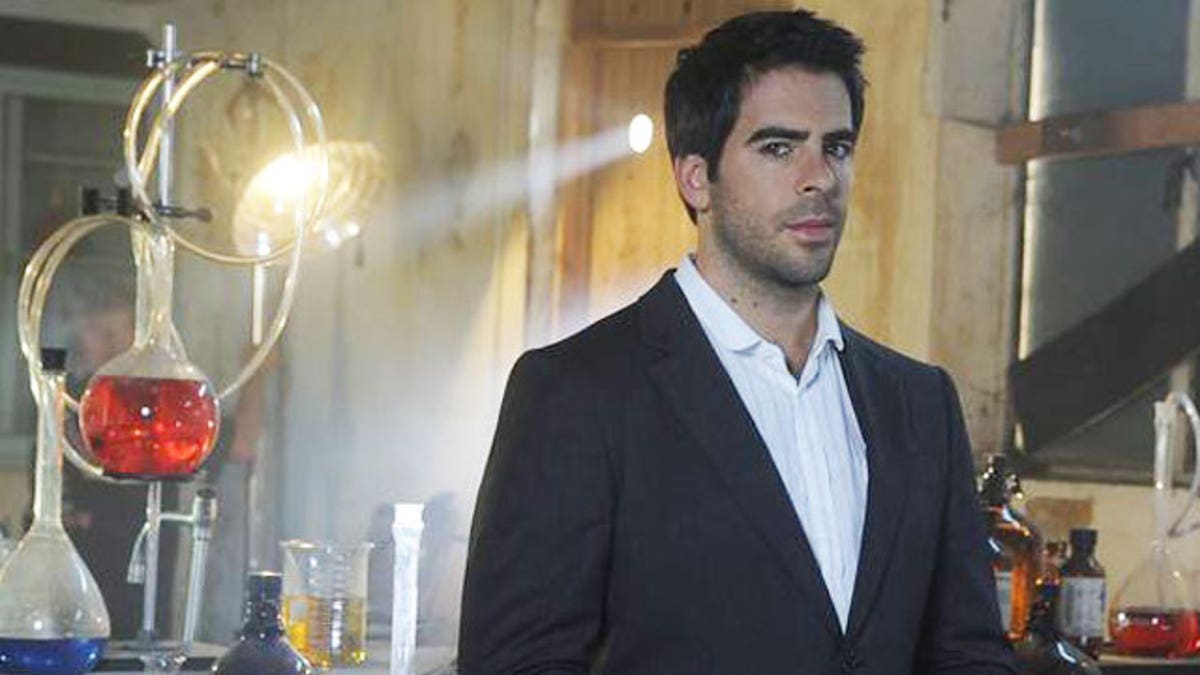
Eli Roth. (Discovery)
In 1961, Yale psychology professor Stanley Milligram undertook a now famous experiment to see if average Americans would blindly follow the cues of an authority figure and perform violent acts on innocent victims.
It turned out they would.
Fifty years later, Eli Roth, the director of horror films like "Cabin Fever" and "Hostel" star of the ultraviolent "Inglourious Basterds," has re-created Milligram’s controversial study, in which a person administers greater and greater electric shocks on a total stranger, just because someone tells them to.
Roth's performs the experiment in “How Evil Are You?," part of the Discovery Channel's “Curiosity’ series, which airs Sunday.
“I’ve always been fascinated by what people do. It comes from my Jewish upbringing and so much Holocaust education. My dad’s books were like “The Nazi Doctors” and at dinner, my dad would be like, ‘The Nazis did this and that,’ and you think, ‘How did this happen? How can people do this?’” Roth told FOX411’s Pop Tarts column. “I remember seeing footage from the Milligram experiment where people were shocking each other because a scientist told them to, it just showed what people will do when there is an authority figure telling them to do something horrible.”
In the special, Roth used several different types of people as testing subjects, and subjected himself to extensive brain testing, scans, and full genetic sequencing on his DNA to determine if he carries what researches refer to as “the evil gene.”
“I don’t think there is an actual thing that is ‘evil,’ and I do not believe ‘evil’ exists and it’s completely your point of view. To one group, a suicide bomber is the anti-Christ and to another group, they’re a hero and a saint,” Roth said. “There are certainly acts that are unquestionably evil acts, but the reasons most people do them is that they truly believe that they are right, and it is for some kind of greater good, or they feel totally justified doing it.”
Roth was also eager to discover if humans have changed over the past 50 years, and whether things like violent video games and gory horror movies would make the average American more or less prone to violence.
“What was most disturbing to find out was that it was exactly the same, most people would still shock someone to death if an authoritative figure tells them to do so. The tension of sitting there watching people continually shock people at greater and greater voltages, hearing the other person scream and knowing they are in pain or have a heart condition, and watching them keep going, was one of the scariest things,” Roth continued. “But at the same time, as humans I understand we need authority in our society. We need to see the policeman on the corner, or to know if there is a fire, there’s a fire truck. We listen to our teachers and we have to have authoritative figures for society to work and function, but it does come to a point where it is more of a parlor trick than a scientific experiment.”
Some think the prevalence of graphic violence in entertainment today has had a significant impact, particularly on children.
"Anyone who has seen the way a child acts after watching a violent program cannot possibly believe violent entertainment has no effect whatsoever on a child’s behavior,” argued Melissa Henson, director of communications and public education for the Parents Television Council. “The consensus of the medical community, including the American Academy of Pediatrics, the American Medical Association, and the American Psychological Association, based on over 50 years of research, and thousands of scientific studies is that violent media content does influence behavior and has been conclusively linked to aggression. As entertainment violence becomes more graphic, gorier, and more realistic, I’m afraid we can expect the effects to become even more pronounced in this and future generations.”
“How Evil Are You?” premieres on Discovery Sunday, October 30 at 9PM E/P
- Deidre Behar contributed to this report.






